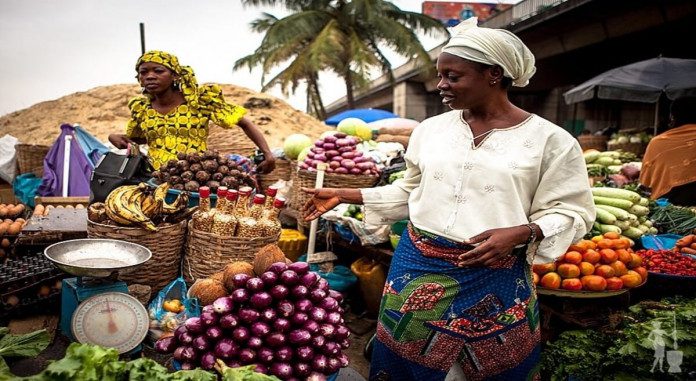News in Brief:
– Nigeria is considering suspending duties and taxes on certain food imports to improve affordability and availability of food in the country.
-This move comes after other interventions, like releasing food reserves and buying rice from processors, failed to bring down prices.
Following a period of significant food price inflation in Nigeria, the federal government has outlined a series of measures to improve food security. The Minister of Agriculture and Food Security, Senator Abubakar Kyari, announced the plans in a press briefing in the nation’s capital of Abuja, recently.
He acknowledged the widespread rise in food prices across the country, while expressing empathy on the part of government towards the situation. He referenced data from the National Bureau of Statistics (NBS) indicating a food inflation rate of 40.66%, which he remarked has made many essential food items unaffordable for a large portion of the population.
Therefore, the minister outlined several initiatives by the government aimed at curbing food price inflation. These measures include:
- Importation of staple goods: The federal government will import 250,000 metric tonnes of wheat and 250,000 metric tonnes of maize, which will be supplied to small-scale processors and millers throughout the country.
- Duty-free import window: A 150-day duty-free import window has been established for specific food commodities, including maize, brown rice, wheat, and cowpeas. Imported goods under this scheme will be subject to a set Recommended Retail Price (RRP).
Kyari highlights five long term food security strategies

Minister Kyari also enumerated other actions to be embarked on by the government in the long run to tackle the food security challenges. These measures include:
- Supporting small-scale farmers: It will provide continued support to smallholder farmers during the current wet season planting period through existing initiatives. It also plans to bolster and accelerate dry season farming practices nationwide.
- Agricultural mechanisation: Emphasis was also placed on mechanisation as a key strategy of government to curb the prevailing situation. It will invest in agricultural mechanisation to reduce manual labour, decrease production costs, and enhance yields.
- Increased land cultivation: It plans collaboration with regional authorities that will identify irrigable land to expand the area under cultivation within the country. Also, the agriculture ministry will work alongside the Ministry of Water Resources and Sanitation to rehabilitate and maintain irrigation facilities managed by river basin authorities.
- Youth and women in agriculture: A strategic programme will be developed to engage young people and women across the country in immediate greenhouse cultivation of high-demand vegetables like tomatoes and peppers. This move aims to increase production volume, stabilise prices, and address food shortages.
- Military and paramilitary farms: It will also expedite ongoing collaborations with the Nigerian military to cultivate arable land under the Defence Farms Scheme and other paramilitary organisations will be encouraged to cultivate available secure land.
In conclusion, the minister assured Nigerians that his team would swiftly and effectively implement these critical policies to ensure immediate food security for all. He reiterated that President Tinubu is unwavering in his commitment towards attaining food security and ensuring that no Nigerian goes to bed hungry. Meanwhile, he emphasised the current administration’s ongoing development of long-term solutions to address the root causes of food insecurity.



